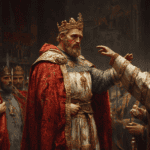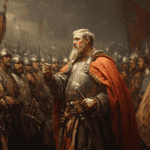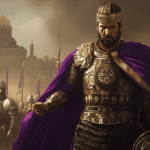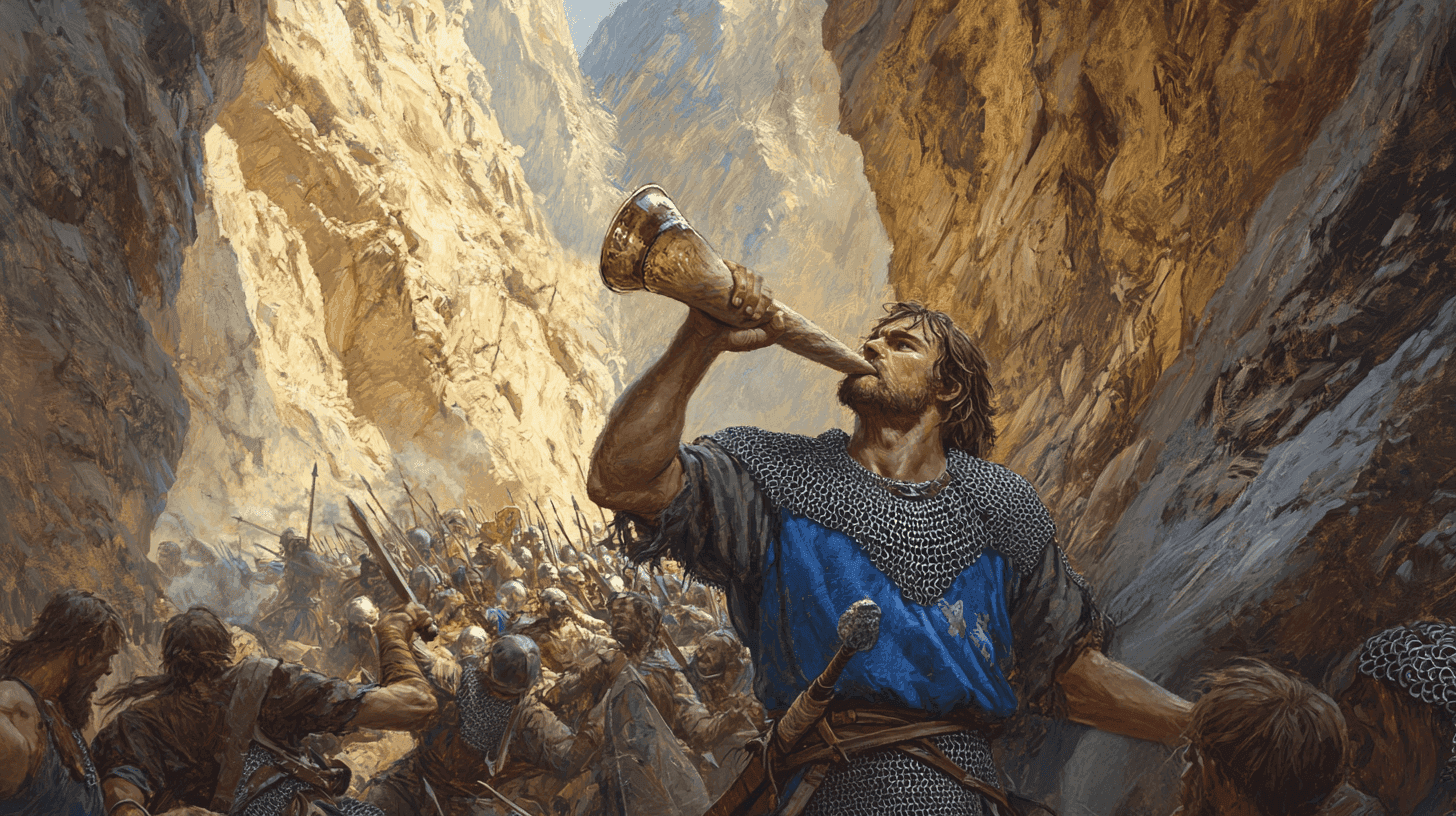
The Battle of Roncevaux Pass, fought on August 15, 778 CE, stands as one of the pivotal moments in early medieval European history. This confrontation not only marked a significant military engagement during Charlemagne’s campaigns but also inspired the legendary epic “The Song of Roland,” which immortalized the valor and tragedy of the event. This summary explores the background, events, and consequences of the battle, as well as its lasting impact on literature and culture.
Charlemagne’s Campaigns
Charlemagne, also known as Charles the Great, was King of the Franks and Lombards and later became Emperor of the Carolingian Empire. His reign marked a pivotal period in European history characterized by military conquests, administrative reforms, and cultural revival. By 778, Charlemagne had been engaged in a series of campaigns against the Saxons, who resisted Frankish rule. After several years of conflict, he sought to expand his influence into the Iberian Peninsula.
In 777, Charlemagne launched a military expedition into Spain with the aim of subduing the Muslim territories there. His forces successfully captured several cities, including, but faced increasing resistance from local populations.
After capturing Pamplona, Charlemagne believed he had secured the loyalty of the local governor in Zaragoza. However, upon realizing that Zaragoza remained hostile, he laid siege to the city. Following a month-long standoff, the governor offered a substantial bribe to Charlemagne in exchange for lifting the siege. Faced with reports of a revolt among the Saxons back home, Charlemagne accepted the bribe and decided to retreat through the Pyrenees.
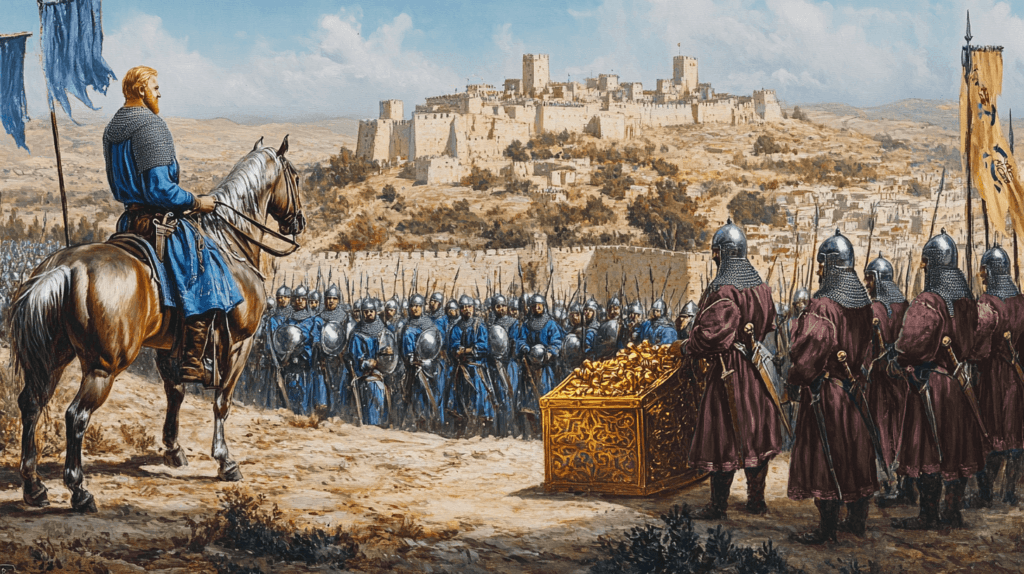
During this withdrawal, Charlemagne’s forces committed acts of aggression against the local Basques, including razing villages and destroying city walls. These actions incited anger among the Basque people, who felt threatened by Frankish expansionism and sought to protect their territory and autonomy.
The March Back
Charlemagne’s army was stretched thin after months of fighting and was burdened with loot from their conquests. As they began their march north through the Pyrenees on August 15, they encountered difficult terrain that would soon lead to disaster.
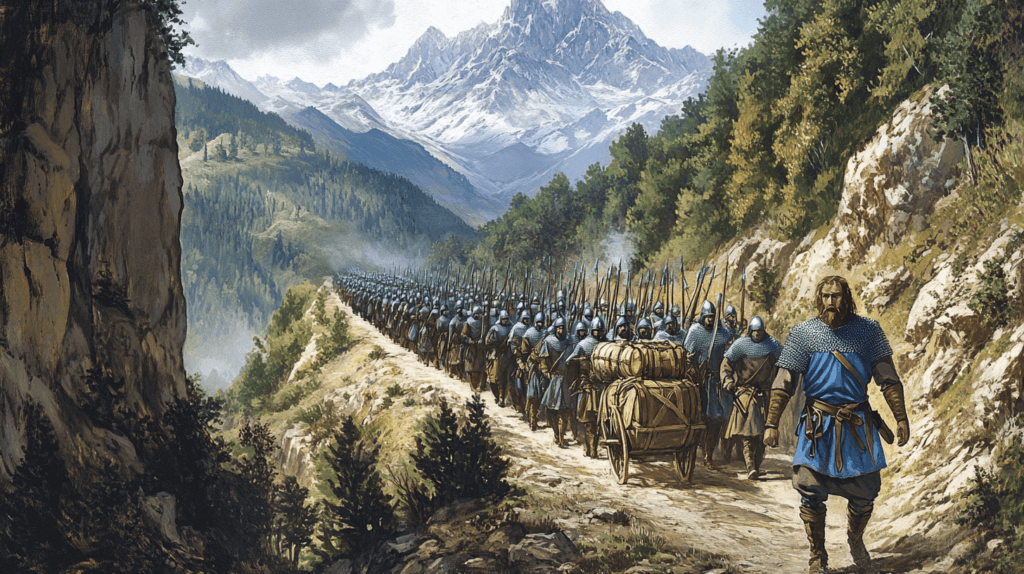
The army was organized into a long column due to the narrow mountain roads. At the rear were essential units tasked with protecting the baggage train that carried spoils from their campaign. Among these troops was Roland, one of Charlemagne’s most trusted commanders and a figure who would become legendary due to his actions during this fateful encounter.
The Battle
The Ambush
As Charlemagne’s forces ascended through Roncevaux Pass, they were ambushed by Basque warriors who had taken advantage of their vulnerable position. As Charlemagne’s army traversed the narrow Roncevaux Pass in the Pyrenees – a treacherous route surrounded by dense forests – the rearguard, commanded by Roland, found itself isolated. The Basques, familiar with the rugged terrain and adept at guerrilla tactics, launched a surprise ambush against this vulnerable segment of the Frankish army. The attack was meticulously planned; as dusk fell, Basque fighters descended from the heights, using boulders and projectiles to disrupt the Frankish formation.
The narrowness of the pass severely limited the Frankish soldiers’ ability to maneuver. The rearguard, consisting of approximately 2,000 men, was quickly overwhelmed despite their superior training and equipment. The Basques utilized their knowledge of the landscape to their advantage, launching javelins and arrows from concealed positions among the trees.
The Fight
The battle quickly escalated into a fierce melee. Roland led his men valiantly against overwhelming odds but realized that they were outnumbered and outmaneuvered. Despite their superior training and weaponry, the Franks could not effectively combat the agile Basque fighters in such rugged conditions.
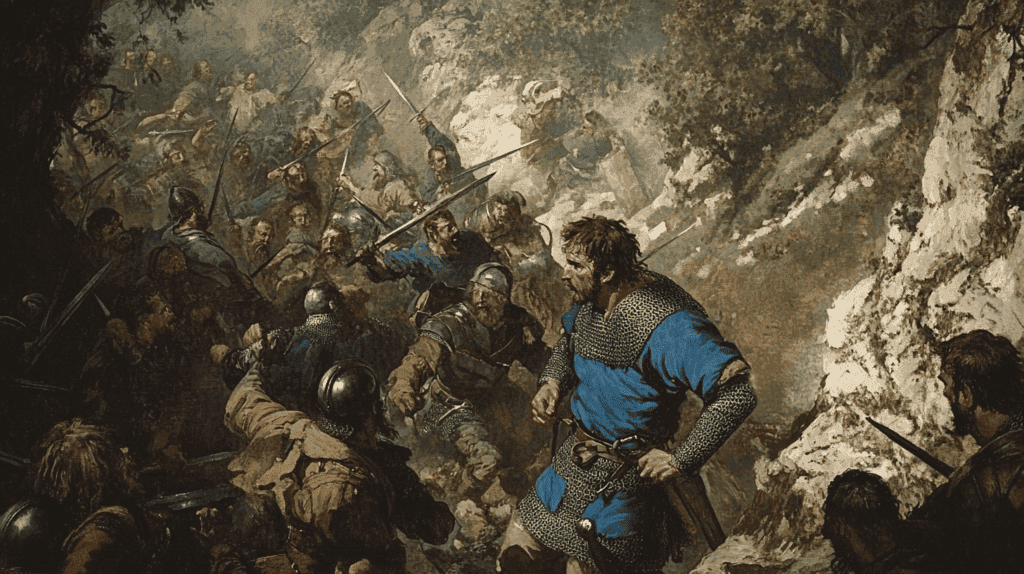
In a desperate attempt to call for reinforcements from Charlemagne’s main force ahead, Roland blew his oliphant (a horn made from an elephant tusk) with all his might. This iconic moment is famously depicted in “The Song of Roland,” where Roland’s refusal to sound the horn earlier is portrayed as both a mark of bravery and tragic pride.
The Aftermath
Despite Roland’s heroic efforts, due to the distance between the rearguard and Charlemagne’s main body of troops, assistance arrived too late. The relentless assault continued throughout the night until all members of Roland’s unit were killed. Among those who fell were notable commanders such as Roland himself and other members of Charlemagne’s elite warriors known as paladins.
When Charlemagne eventually learned of the ambush through Roland’s call for aid, he rushed back only to find his men slaughtered. Enraged by this betrayal and loss, he pursued the Basques into their territory but could not fully avenge his fallen comrades due to the elusive nature of their attackers.
Cultural Impact
The aftermath of Roncevaux Pass resonated deeply within European culture and literature. The battle inspired “The Song of Roland,” an epic poem that became one of the earliest examples of French literature. Written down in the 11th century but based on events from 778 CE, it romanticized Roland’s heroism and sacrifice while framing it within a larger narrative about Christian valor against perceived pagan threats.
The Battle of Roncevaux Pass became emblematic of Christian resistance against Muslim forces during a time when Europe was grappling with its identity amidst rising Islamic influence in Spain. However, that is highly misleading as both sides contained Christians – the battle was about Basques resisting Frankish domination rather than Muslims attacking Christians.

